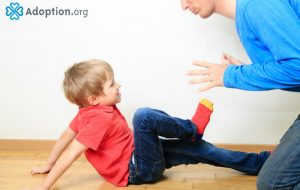Sunrise in my home commences with my children singing in perfect pitch with the sparrows on our window ledge, after which I prepare a delicate but luscious breakfast of strawberries, aromatic basil, and freshly whipped cream. Just kidding. More realistically, I throw frozen waffles in the oven and let the kids watch TV in separate rooms so they won’t fight over the remote before the school summer program starts. We all have parenting moments we aren’t proud of, but there are times when forgiving yourself for your humanity the most difficult thing to do.
According to Jean Lawrence of WebMD, “your heart and mental health may depend on your ability to reduce hurt and anger, even at yourself. So effective is forgiveness…that Stanford University is undertaking a project to learn how forgiveness can enhance health and relationships and even prevent disease.”
Your physical and mental health, and even your longevity, could be correlated with your ability to forgive. It literally unburdens your heart to abandon the burdens of sins committed or those leveled against you. We forgive ourselves daily for leaving the oven on while we run out to the bodega, or for forgetting to pay the WiFi bill, or for getting a red-light camera ticket. What is it about parenting that makes our mistakes seem non-permissible? Maybe it is because we recognize the gravity of our responsibility or the deep-rooted impact we are making. Maybe it is because we know our kids’ personalities and are afraid of harming them indelibly by being too hard or too soft. Maybe it is because, in the end, we are actually good parents, and our diligence makes us aware of flaws that need to change so we can become even better.
Because You Care
Let’s face it. It wouldn’t bother you if you lost your patience or ignored your kids or fed them marshmallows and coffee for lunch if you didn’t care. Parents who care are always noticing things they are doing wrong because they are concerned about the welfare of their children. Yet there comes a point when being overly concerned with one aspect of parenting can lead to lack in another. Those obsessed with avoiding germs, for example, can compromise their children’s immunities through lack of exposure, and parents dogged about academic tasks can cheat kids out of a healthy social life. It seems that we are always falling short. Yet the proof that you are a good parent is in your concern about the welfare of your child, and that vision is constantly evolving as we learn about kids and ourselves.
Because You Are Human
It is the nature of any professional to make mistakes and learn from them, as unfortunately, none of us are instinctively flawless. Acknowledging your foul-ups, rather than denying them, is an excellent coping skill to model for your children, who will eventually come face-to-face with their lack of perfection and will be reminded of a parent who dropped the ball, picked it back up, and started a new inning.
Because You Can Do Better
Often, those who master skills did not acquire them immediately. Rather, they studied the building blocks until they were confident of how the pieces fit together. In parenting, we learn when our kids need to be pushed, encouraged, or disciplined by watching them fail and succeed on the rutted road of childhood. Like passionate ball-players, we dust off our knees, polish our mitts, and recommit to winning.
Rebekah Yahoves is a writer, mother, and music teacher from Long Island. In 2016, she adopted three school-aged siblings from Poland at the same time. When she isn’t constructing casseroles or tuning violins, Rebekah likes to go on tea binges and read.
